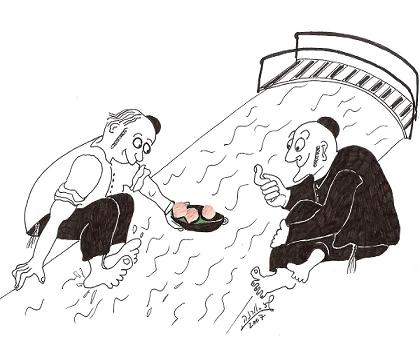
One of the labors forbidden on the Sabbath is taking an object from inside one’s house and placing it outside, in the public domain. Chazal ruled that to be liable for the sin of desecrating the Sabbath which is designated in Halacha as “removing from domain to domain,” one must take the object placed in the private domain and lay it down in the public domain. Thus, for example, if a person takes an object out of his home and into the public domain and places it upon the flowing waters of the river, he would not be considered to have sinned in taking an object from a private domain to a public domain, for the object has not been placed in a set place, but continues to move with the flow. If he takes water out of his house and pours it into a river outside, he would be considered, according to the sages, to have sinned in taking an object from a private domain to the public domain, for water customarily rests upon water. But if a man took a nut from his house and placed it in the flowing waters, it would not be considered a desecration of the Sabbath. One sage, Rava, asked: what is the rule if a person takes a nut out of his house and places it in a vessel floating on the river. Is this considered sinning or not? What are the issues under debate? On one hand, he has placed the nut on flowing river waters, and we have stated above that in this case he is exempt. On the other hand he has placed the nut in a vessel, and as far as the nut is concerned, it is located in a set place, the vessel, and it can ignore the flow of the river waters. (This issue was not decided in the Talmud.) In a case where a person takes olive oil out of his house, into the public domain, and pours it into a cup full of wine, placing the oil atop wine, the sages were divided on whether this is considered a desecration of the Sabbath or not.
(Babylonian Talmud, Tractate Shabbat 5b)
